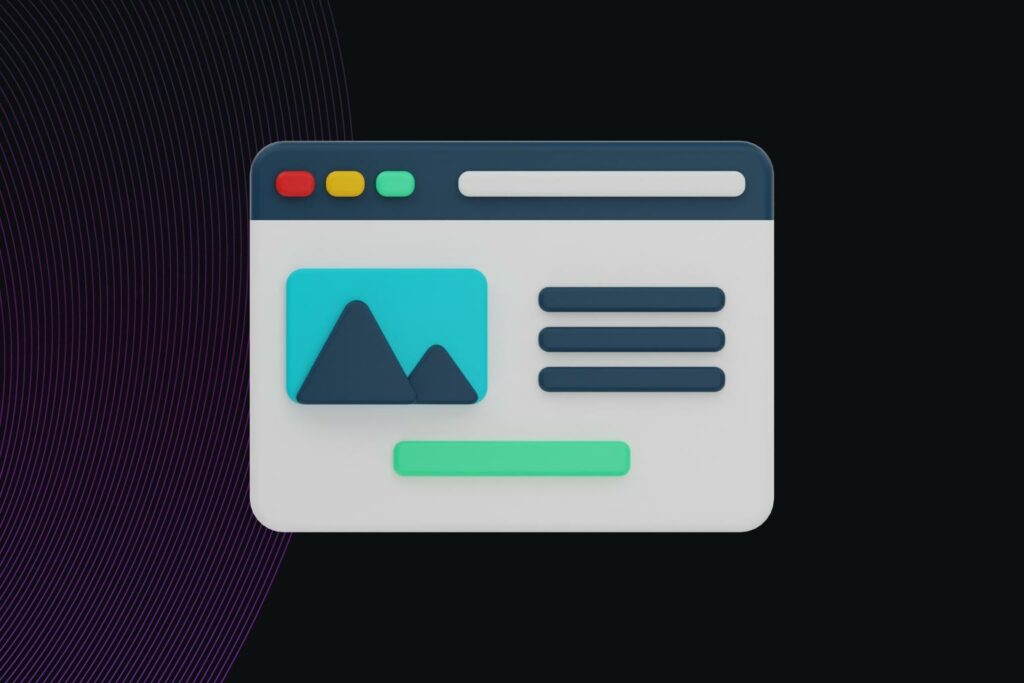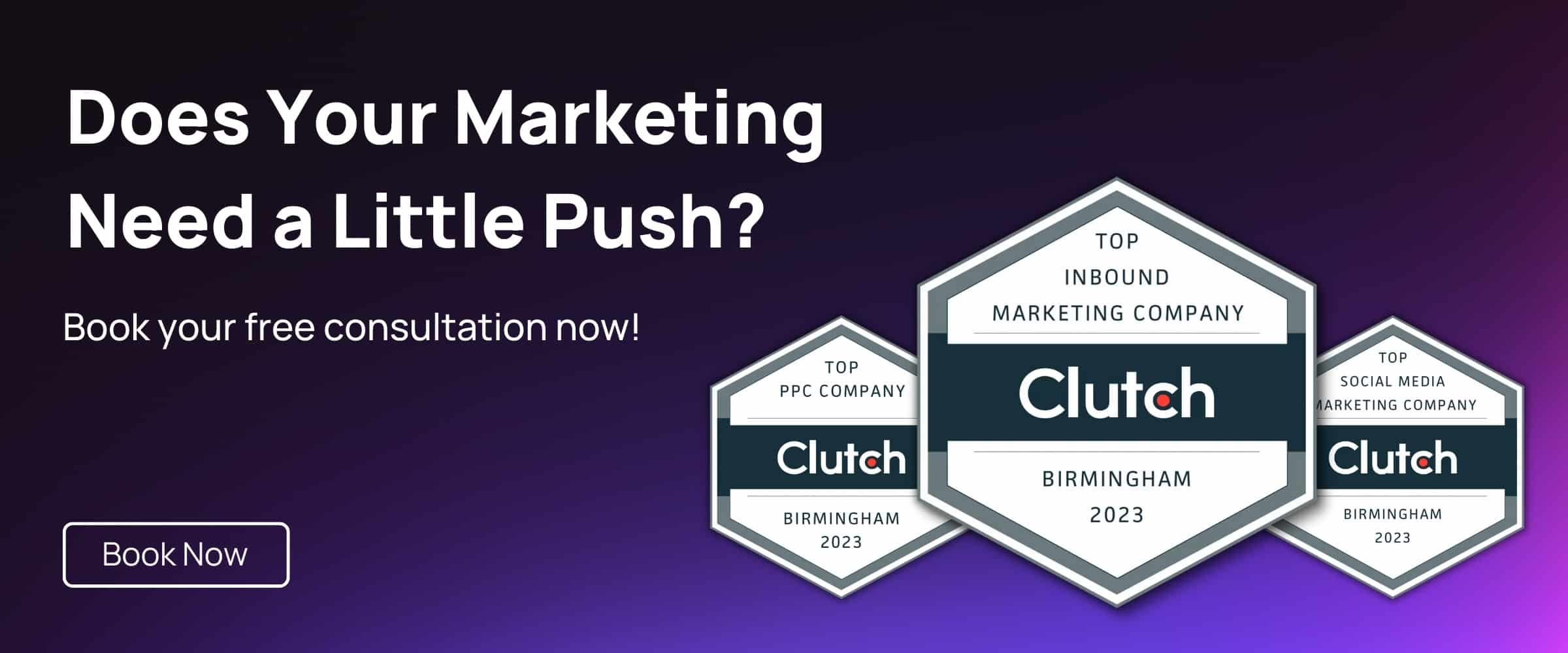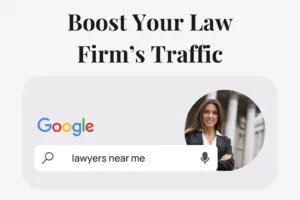Introduction
PPC management for small businesses can be challenging. The industry is ever-changing, and most small companies don't have time to fully take advantage of such digital marketing channels' opportunities!
PPC has always been an excellent way for small businesses to promote their products or services and find ready-to-buy customers and clients. However, over the past two years, Google has made many changes that require small businesses to change how they manage their PPC campaigns. From phasing out 3rd party cookies to changes in bidding and the machine learning engine behind Google's automated bidding.
The key to successful PPC campaigns for small firms lies in data collection and the ability to analyse them. However, most small companies don't have the correct setup to utilise the full power of PPC advertising. This blog will discuss the top eight techniques small businesses can use to improve their PPC campaign's ROI. We will also discuss PPC management software that can help reduce some of the guesswork and further boost your campaigns. Let's dive in!
What is PPC?
Pay-Per-Click, or PPC for short, is a type of online advertising where the company pays a fee each time one of their ads is clicked. The fee is decided in an auction run by the ad platform. Different platforms provide various levels of control over bidding as a measure for companies to control costs. PPC marketing allows smaller businesses to reach a larger audience at an affordable rate (Well, relatively, Google ads could be costly, check out our list of top 10 Google Ads alternatives)
What are some examples of PPC Channels?
PPC refers to any platform that allows businesses to promote their ads and only pay when users click on them. Google Ads and, in general, all other social media channels offer pay-per-click as part of their advertising services. In this blog, we want to focus on Google ads and leave the rest for another blogs!
Examples
- Microsoft ads
- meta ads (Instagram & Facebook)
- bing ad
- Pinterest ads
- Linkedin ads
- Google ad network (Display, Youtube, Search ads)
Why is PPC important for small businesses?
PPC advertising allows companies to reach a targeted audience with specific ads and only pay for the clicks received. This approach helps small businesses compete with larger firms, generate leads and sales and increase brand awareness affordably. Additionally, PPC advertising dashboards provide more attribution data than other channels (Direct response or SEO). The opportunity to track and measure the success of campaigns in real time allows small businesses to optimise their efforts and make data-driven decisions.
Does PPC work for small businesses?
When choosing a marketing channel, PPC marketing should be the top priority of your digital marketing campaigns due to its ability to deliver fast results. PPC is probably the most cost-effective option for most businesses. check out this page If you're interested in learning more about our PPC packages,
Now let's review the top eight techniques to boost the ROI of your PPC marketing campaigns in 2024.
1-Create the perfect PPC campaign setup
As a digital marketing agency, we've seen many SMEs (Small to medium size businesses) suffer from lousy analytics and website setup, which are fundamental to the success of any Pay-Per-Click campaigns. After all, paid ads only attract prospects to your site; the rest depend on your website design, user experience and your offer. The customer journey can be divided into three phases.
Pre-Click
While creating your campaign, set goals and assign value to them; your goal's value allows machine learning to optimise the delivery towards the goal with the highest value. Your ad creative, copy, and keyword strategy will all play a role in how much you'd end up paying for each click. Optimising this stage should be your priority.
Post-Click
Your landing page speed, UX design, website copy and product description are all part of the post-click phase. Once a prospect clicks on your ads, these are the factors that will decide whether a click will turn into a conversion or not.
Feedback loop
Your analytics and data-sharing structure will determine the quality of your next click. We have shared more on this topic in our step-by-step guide for small to acquire more clients. Make sure you'll check it out! This step would involve linking your GTM to your GA4, and Google ads account, creating a two-way sync between your CRM and Google Ads' audience through server-side first-party cookie tracking. This is an area where a lot of agencies leave out. However, a good PPC agency will ensure all those connections and APIs are in place to get every bit of value for the ad spend budget. We'll also expand on this topic later in the blog. If you're looking to find more information on outsourcing your digital marketing, check out our this blog post to learn more.
Google Ads & PPC
PPC platforms are relying more and more on machine learning to drive clicks and conversions to your website. Therefore, if you expect to generate a good ROI in your PPC campaigns in 2024, you will need to feed Google Ads the correct data through conversion tracking.
The more data you collect, the better Google will understand the critical signals important to your business. Signals such as the best time to run your ads, the best target demographics, and relevant search queries that generate the highest ROI.
2-Connect Google Analytics with Google Ads
This allows better data collection and communication between the two platforms. For example, connecting GA to your PPC ad account will show how well your PPC campaigns drive visitors to your site. In addition, it would also allow for creating new audiences in Google Ads based on visitor data in Google Analytics! e.g. A remarketing audience for those who visited your checkout page but didn't actually make a purchase.
To set this up, follow Google's guide.
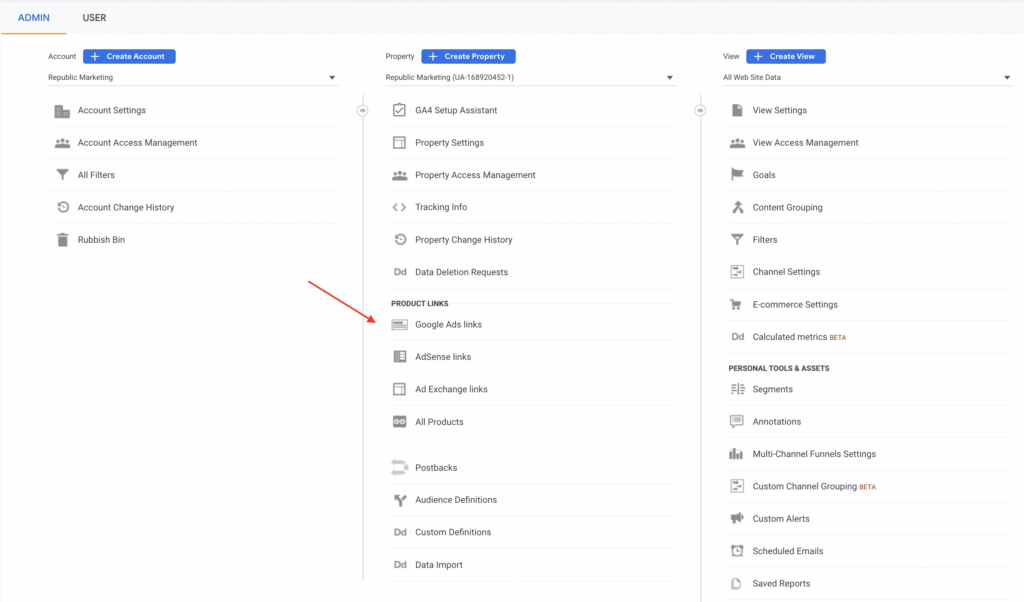
3-Set up Google Ads Goals through Google Tag Manager
The easiest way to set goals is by importing them from Google Analytics into your ad account. However, this is not the best approach for many businesses. Why? It has to do with attribution models. These are the calculations that Google uses to attribute each conversion to their source. This is crucial since Google uses different attribution models for goals set up in Google Analytics compared to the ones you can create in Google Ads.
Sound complicated? Here is an example that better explains this:
If a visitor clicks on your ad and converts in the same session, both platforms show the same results in their reports. However, if the visitor doesn't convert but later searches for your brand and converts on their second visit, Google Analytics will not attribute this conversion to Google Ads. However, it was your PPC campaign that initially brought the customer to your site; thus, without proper attribution, neither you nor Google will know which campaigns are getting results.
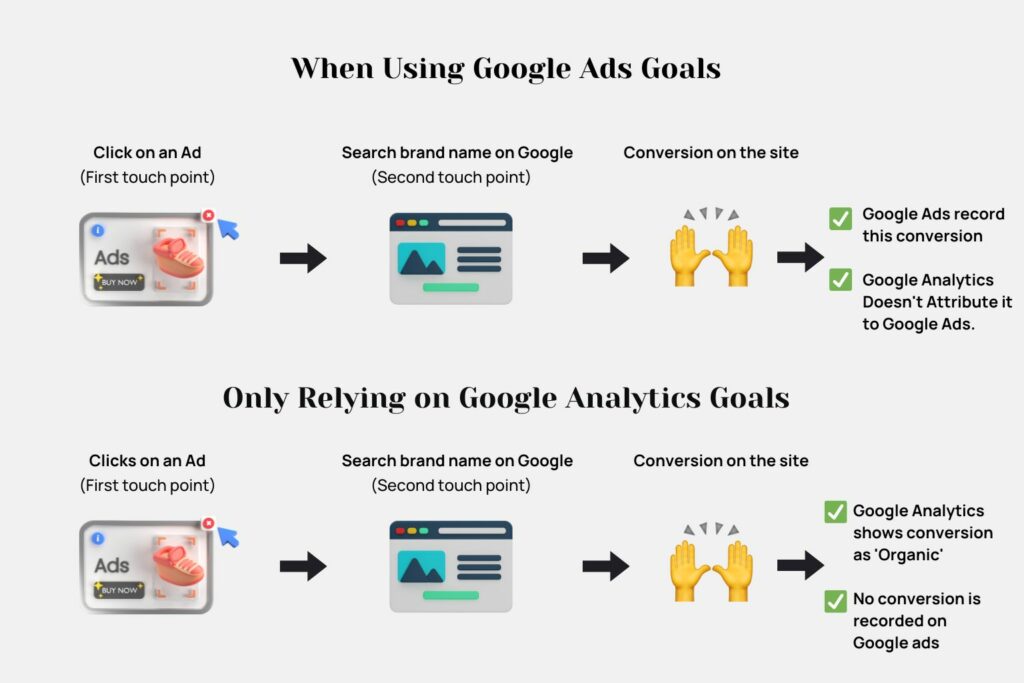
Below is a video from Google to help you create a Google Ads goal using Google Tag manager.
Pro Tip: To accurately measure your PPC campaigns' impact and identify your leads' sources, it is necessary to use software that captures Google ads UTM parameters and passes the data to your submission inbox or the CRM software. While Google Analytics and other software can capture and understand UTM data, it is often anonymised and unable to pinpoint the exact origin of a specific lead, causing small businesses to miss out on valuable PPC optimisation opportunities. Among the UTM tracking tools available, we highly recommend Attribute, which offers affordability and a 14-day free trial, in contrast to the costlier GA Connector. Once you uncover the sources of your high-value clients, you can focus your efforts and resources on those channels, campaigns, or even keywords.
4-Run a Proper Competitor Analysis
Suppose you're unsure which keywords to include in your marketing campaign or are just starting your first PPC campaign. Then, our advice is first to understand how your competitors are running their PPC campaigns. You could use tools such as Ahrefs, which allows you to review the keywords your competitors are bidding on, their ad copy and landing pages.
When you're analysing those keywords, make sure that you pay attention to the length and their potential intent. For example, some keywords belong to the research phase of a customer journey, while others are more transactional with a potentially higher ROI.
Here's what to look for:
- Search volumes - It is essential to know how much search volume your competitor gets for each keyword. Don't just go for the ones with the most traffic, especially if you’re on a tight budget.
- Competitor's budget - You can get a rough idea of how much they're spending on PPC Campaigns by looking at the CPC & spend column on Ahrefs.
5-Check to see if anyone is bidding on your brand name
Some PPC campaigns are designed to target your brand name, so when other people search for you, a competitor's product or service comes on top of your organic results. You may say, "Let them try." But the truth is that if those visitors are in the research phase, then they're more susceptible to such campaigns, especially if those ads are further boosted with a promotional offer.
It's painful to run ads for your brand. However, before doing so, head to Google Search Console and search for your brand query. If the average CTR is below 10%, it's time to set up a campaign with your brand name as the main keyword. It doesn't need to have a large budget because you'll probably win the auctions at a cheaper rate than other companies that are trying to bid on your brand name.
6-Target your competitors’ search terms
Whatever goes around, comes around. You could also reverse the above scenario and start bidding on your competitors' brands. However, you'd need to be careful. Mentioning them by name in your ad copy may lead to ad disapproval (in most cases, you're clear to mention them except if they got a trade mark). You could be suggestive and witty instead of mentioning your competitors by name.
Here is an example of when we searched for Monday.com alternatives:
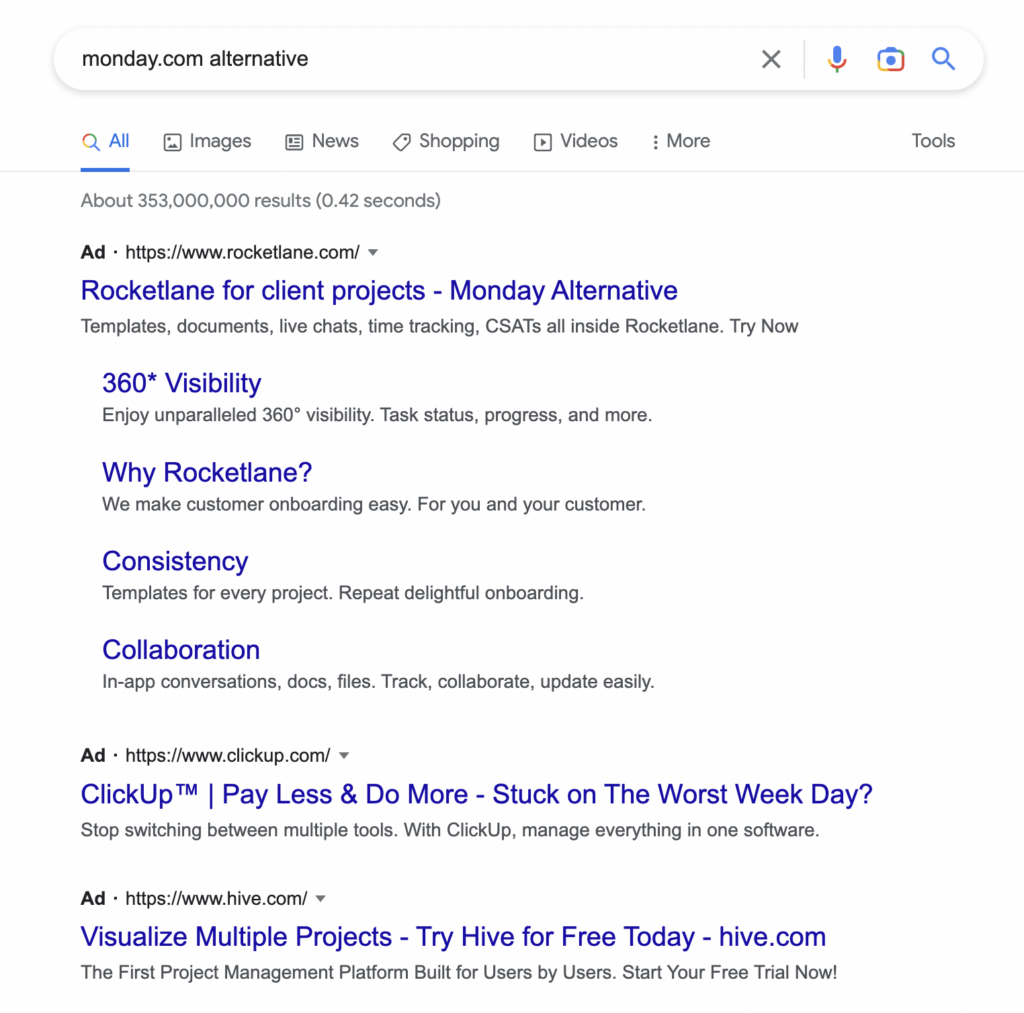
Monday in the first result's ad copy is allowed to run because it could refer to a day of the week. The second result from ClickUp is the winner for us; it's witty and draws your attention immediately.
7-Don't send ad traffic to your home page
One of the biggest mistakes in running PPC advertising is directing the campaign's traffic to the home page. At the very least, we suggest directing your PPC traffic to the relevant service pages.
Google analyses each landing page against the keyword that led to that visit, and if it doesn't see relevant content on your landing page, you will end up paying more than other advertisers for the same keyword.
Google's goal is to provide the best experience to its users, so advertisers with good ad copy and landing pages will win the auctions at a cheaper rate than those with more generic ad copy and landing pages.
A good PPC landing page should have one clear and visible call-to-action and include information relevant to the search query.
8-Show social proof at the top of the page
A new user that doesn't know your brand reputation will seek proof from your past customers. Social proof is a marketing technique that can increase your PPC campaigns' conversion rate. Showing that other people have bought your product or used your service and were happy with the result could be the difference between winning a client or losing them to your competitors.
We recommend placing a Google My Business or Trust Pilot Widget on your website to show real-time third-party reviews on the website.
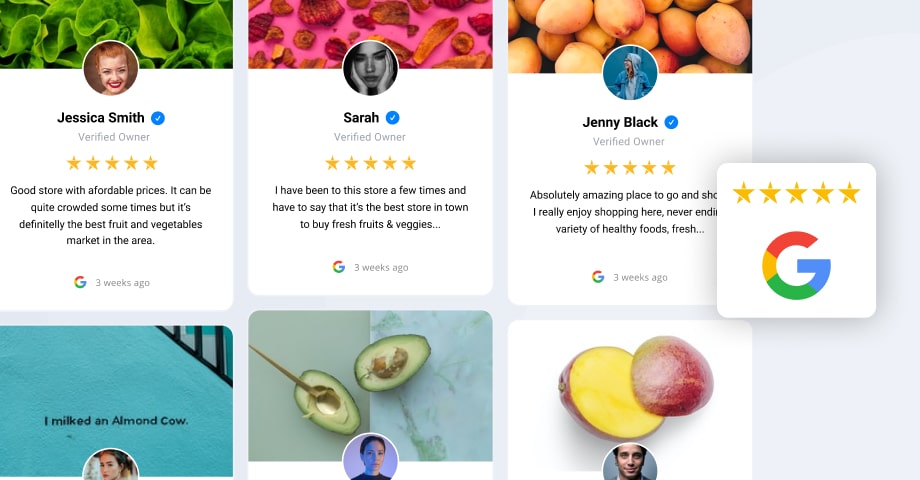
Credit: embed social
If you have a business that benefits from an added visual element, then placing an Instagram widget on your landing page could be hugely beneficial! Without leaving your site, users can view and scroll through your latest social media posts, which will complement your reviews.
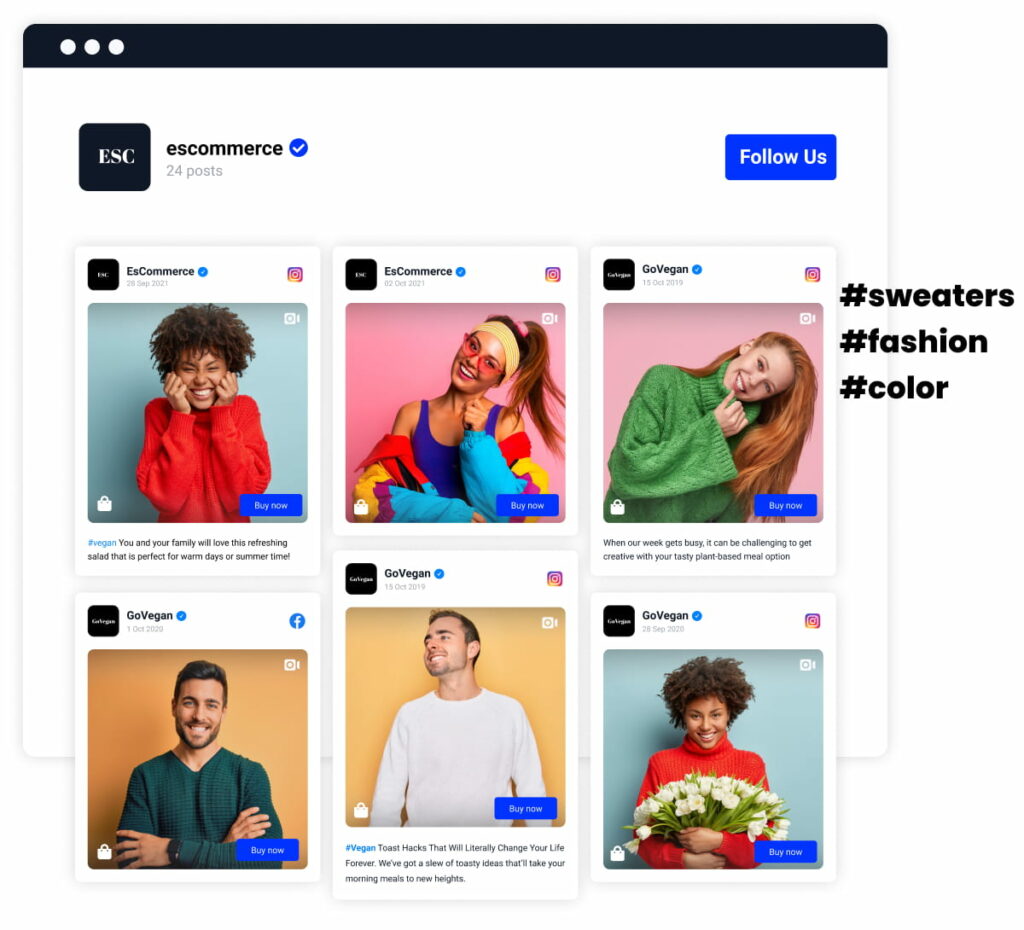
Credit: embed social
We also have a blog on how to get more clients for your local business. So make sure you check that out.
👉Check out these relevant resources
7 Critical Facebook Ad Targeting Mistakes You Have To Avoid
Top SaaS marketing mistakes you have to avoid
Facebook Ads secret most agencies won’t tell you!
Affordable PPC Management Services
Now that you know about the eight techniques to improve your PPC campaign's ROI in 2024, you may think well some of these suggestions are too time-consuming or hard to implement. We hear you; running a successful PPC campaign is more than a good ad copy and a user-friendly landing page. The technical side of tracking and analytics requires some web development and coding knowledge. That's why you'd want to work with an affordable PPC agency that can help you achieve the above. If you're interested, check out our digital marketing packages suitable for both US & UK-based SMEs.
How much does a PPC Manager cost?
The cost of a PPC Manager can vary greatly depending on the scope of the work, the size of the ad budget, and the level of expertise required. Therefore, it's best to get in touch with us. We can surely offer something that suites your budget.

